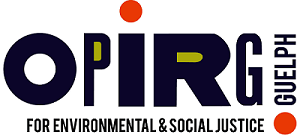
Monday June 19, 6-9pm
University Centre (UC) room 334, U of G
By re-examining allyship, this workshop asks participants to reflect, question and identify their positionality and their responsibilities as an ally in reciprocal and meaningful relationships with Aboriginal people and communities. This includes ways in which to walk lightly as a guest on another’s territory in recognition that different and intersecting worldviews and knowledge systems exist. This workshop will include discussions focused on intercultural competency, the history of colonization in Canada and the connection, impact and consequences of this colonization in a contemporary context. Bringing the learning full circle, in order to ensure that the campus community continues to be welcoming and inclusive, there will be a discussion about protocols and best practices for inviting, hosting and engaging Aboriginal people at the University of Guelph (ie. sharing knowledge and cultural practices).
Facilitators: Maria Shallard and Cara Wehkamp from the Aboriginal Resource Centre at the University of Guelph
Facebook: https://www.facebook.com/events/793256297509567/
This workshop is the first in the Summer Institute series, which runs from June 19 to July 11. For general information and the list of workshops, go to http://opirgguelph.org/2017/06/summer-institute/ or https://www.facebook.com/SummerInstituteGuelph/
Accessibility information:
– this workshop is FREE!
– the room is wheelchair accessible.
– there will be access to an accessible and gender-neutral washroom.
– Vegan and gluten-free snacks (but not a meal) will be provided – feel free to bring additional food for your break if you’d like.
– Child care is available upon request with 48 hours notice. Babies are welcome in the workshop.
– Handouts can be made available in alternative formats with advance notice.
– Bus tickets will be available at the workshop.
– Unfortunately we cannot offer ASL interpretation but please get in touch to talk about how we can make the workshop accessible to you in other ways.
* Please help us to ensure a scent-reduced space. Perfumes, fragrances, scented products and cigarette smoke can be barriers for facilitators and participants. For more information on how to eliminate and reduce scents please see
http://
